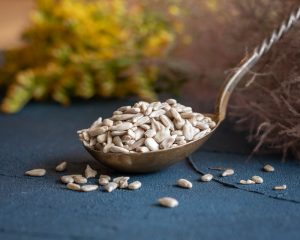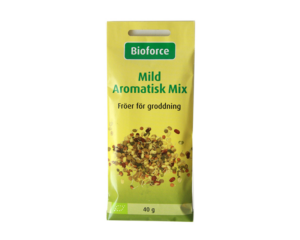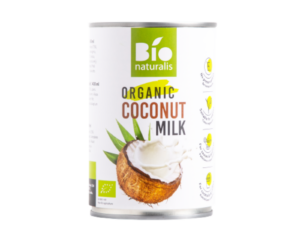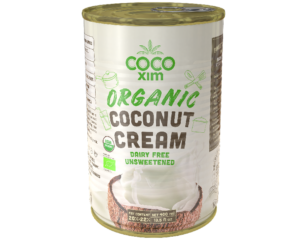Organic shelled almonds
From 2.90€
The almond (Prunus dulcis) nuts is mainly grown in the Mediterranean region, the USA, Australia and China, but originated in the Middle East (Iran, Saudi Arabia, etc.) where it still grows naturally. Almonds are known as the king of nuts because they are considered the most beneficial nuts for the human body due to their high content of essential nutrients. Almonds can be eaten fresh or used in cooking, they are great for baking and in salads. They are not only healthy, but also tasty.
Health benefits of almonds: Almonds are rich in vitamins, minerals, fibre and vegetable protein. After eating 30 grams of almonds, we get 1/8 of the required daily amount of protein for an adult. There are many reasons why you should eat almonds every day: because they reduce the risk of heart attack and other heart diseases, reduce levels of bad cholesterol in the body, protect artery walls from damage, help maintain strong teeth and bones, reduce blood sugar levels, support brain function, nourish the nervous system, help the digestive system function and protect against constipation, help lose weight (and gain weight if necessary), support healthy skin and help with hair problems.
Eating almonds every day can help regulate blood cholesterol levels. This is because almonds contain polyunsaturated and monounsaturated fats, also known as good fats, which raise the levels of good cholesterol (HDL) and lower the levels of bad cholesterol (LDL) in the body. Studies have shown that eating around 100 grams of almonds every day can reduce bad cholesterol levels by 15%. They reduce the risk of heart disease. The main reason for this, as mentioned earlier, is that almonds reduce levels of bad cholesterol. The magnesium in almonds improves circulation and the supply of oxygen and nutrients throughout the body. Almonds are also rich in vitamin E, which protects arteries from harmful inflammation and arterial wall thinning. Eating almonds is associated with better blood lipid levels and better heart health, which can help regulate blood pressure and prevent heart attacks. Almonds improve brain function. Almonds are considered to be one of the best brain foods because they are low in saturated fats, high in omega-6 fats, vitamin E, calcium, zinc and protein. Vitamin E supports cognitive functions, protects memory and promotes alertness. Zinc and vitamin E help protect the brain from the damaging effects of free radicals. Vitamin B6 in almonds helps repair damaged brain cells. Phenylalanine, an amino acid found in almonds, is thought to improve problem-solving skills and may help prevent Parkinson’s disease. Almonds regulate sugar levels and help prevent diabetes. Nutrients such as good fats, fibre, vitamins and minerals help almonds regulate nutrient absorption and blood glucose levels. Studies have shown that almonds can help people with type II diabetes and can help control diabetes in post-menopausal men and women.
Almonds and their benefits for the skin: Almonds contain vitamin E, a nutrient that is essential for skin health. This vitamin nourishes the skin and prevents it from drying out. You can use almond oil for skin care by simply rubbing it on your face, it won’t clog pores or leave an unpleasant greasy feeling. You can also use almond milk for skin damage such as sunburn, etc. These are excellent, natural and effective skin care products.
Benefits of almonds for hair: The nutrients in almonds, from essential fatty acids (omega-6), vitamin E, biotin (vitamin B7) to the mineral manganese, all contribute to healthy hair growth. The zinc in almonds promotes cell renewal and prevents hair loss. Almond oil has warming properties. Use almond oil on your hair, you can massage it into the scalp, apply to the hair, leave on for 30 minutes and then wash off with water, or just leave it on overnight as a hair mask to help it absorb better. Almond oil can help nourish hair or treat existing hair problems, from dandruff to hair loss. Use almond oil on your hair 3 times a week. Almonds are used to produce products that are equally good for health and beauty: almond butter, almond oil, almond milk and almond nutritional cream.
Consumption: how many almonds you can eat depends on your digestive capacity. Appetite and digestive capacity are more important than the recommended amount. However, as almonds (and other nuts) are high in calories, fat and difficult to digest, this should be taken into account.
Attention! In general, it is not recommended to eat more than a handful of almonds/nuts per day. It should also be noted that nuts should be consumed like any other food, after eating a certain amount take a break. Constant snacking can lead to gastrointestinal upsets, leading to toxins building up in the body and possible negative health consequences.
How to use: almonds are not only tasty but also a healthy snack. They can be ground into flour, used to make almond milk, madli butter. There are many ways to cook with almonds, they are suitable for main courses, snacks, desserts and even drinks.
Sources: https://www.tcmworld.org, https://www.ayurvedajournal.world, https://www.ncbi.nlm.nih.gov
NB! The information provided here should not be interpreted as a recommendation for treatment or other types of health problems. We recommend that you make personal health decisions after evaluating different sources of information.
100% peeled organic almonds
Energy value 2600 kJ / 630 kcal
Fats 55,3 g
- of which saturated fatty acids 4,6 g
Carbohydrates without fibre 4,6 g
- of which sugars 3,7 g
Fibre 12,7 g
Protein 22 g
Salt 0,02 g
Store in a cool, dry place. Recommended storage temperature +16°C.











